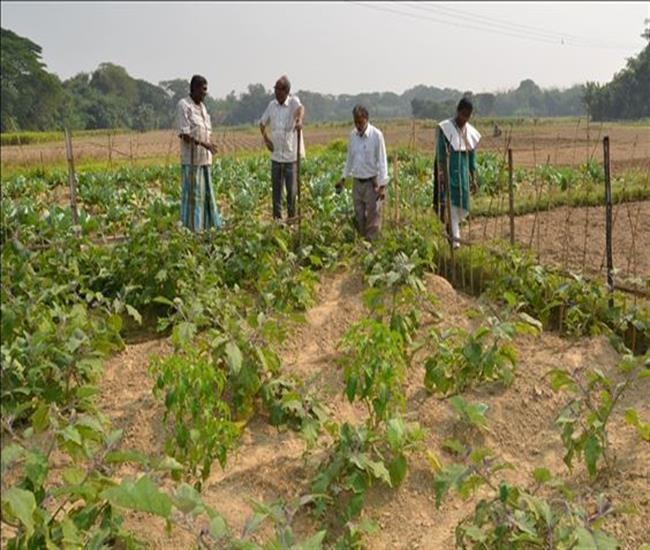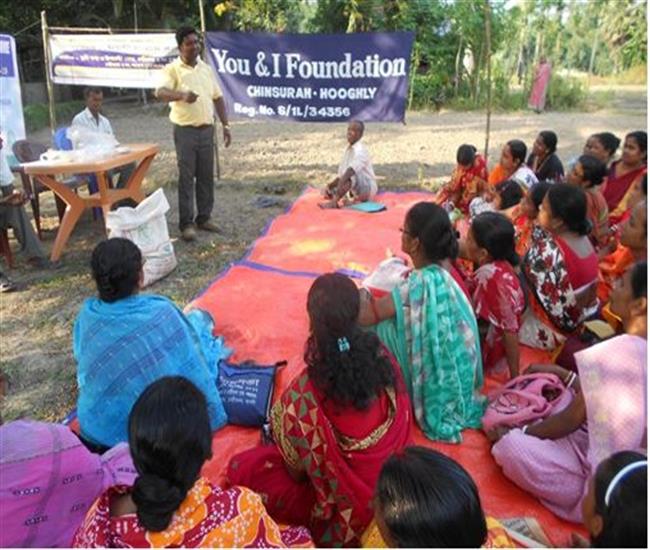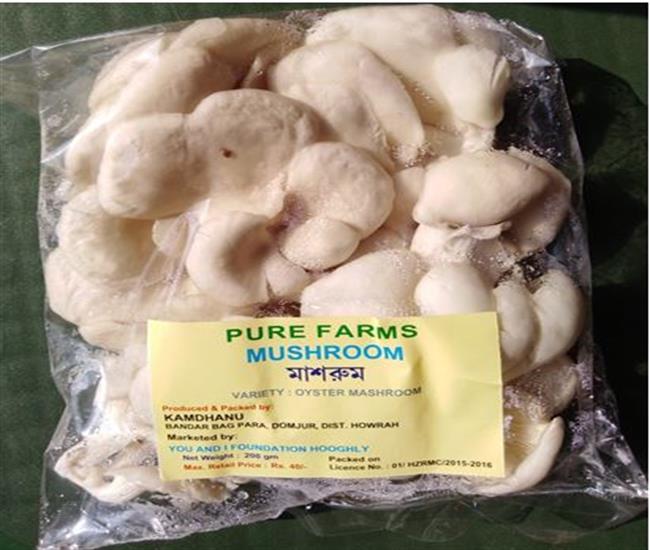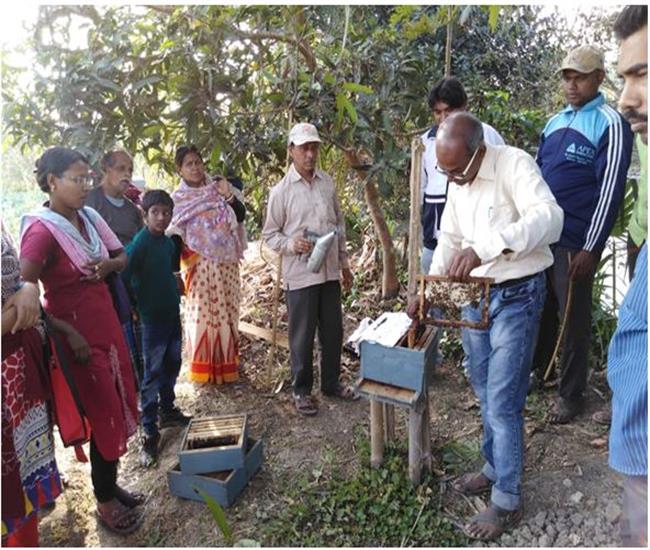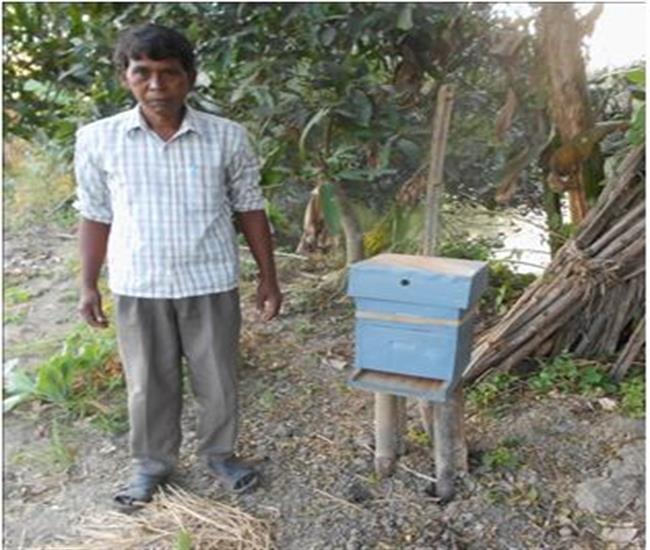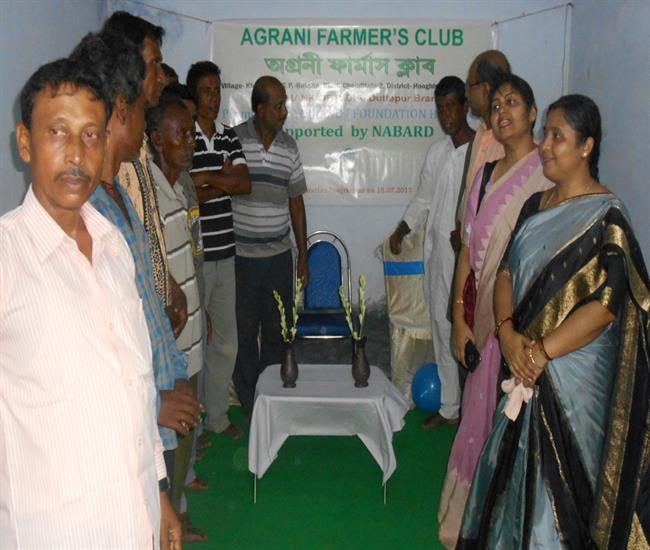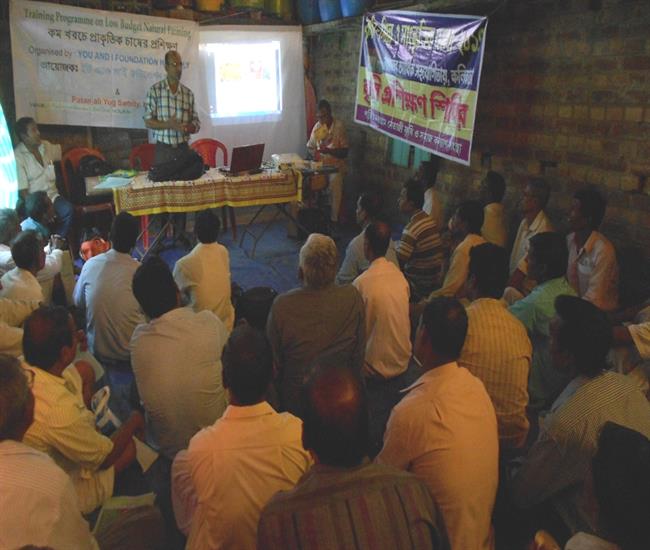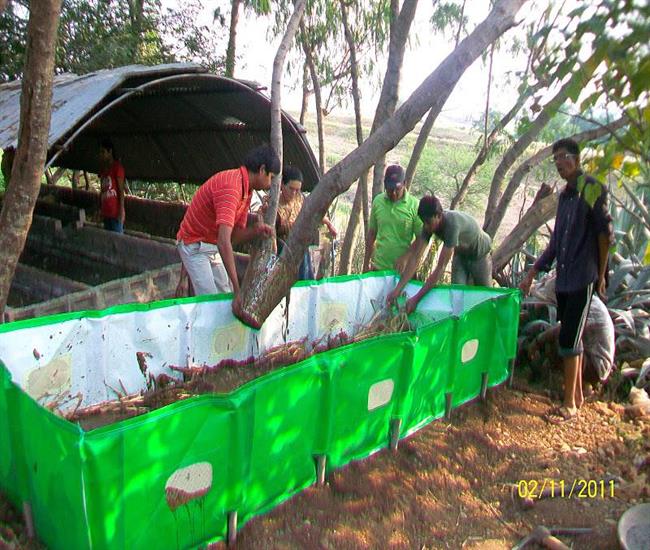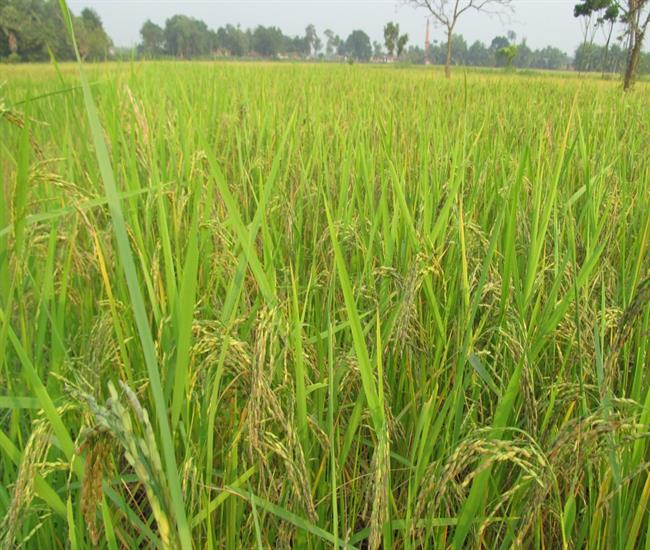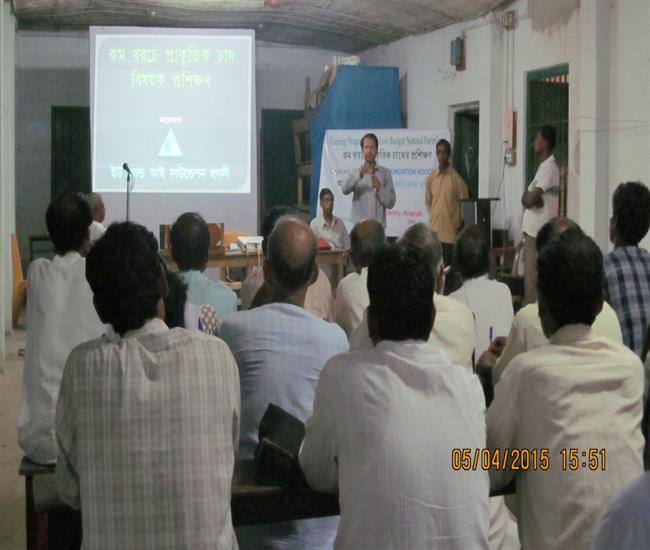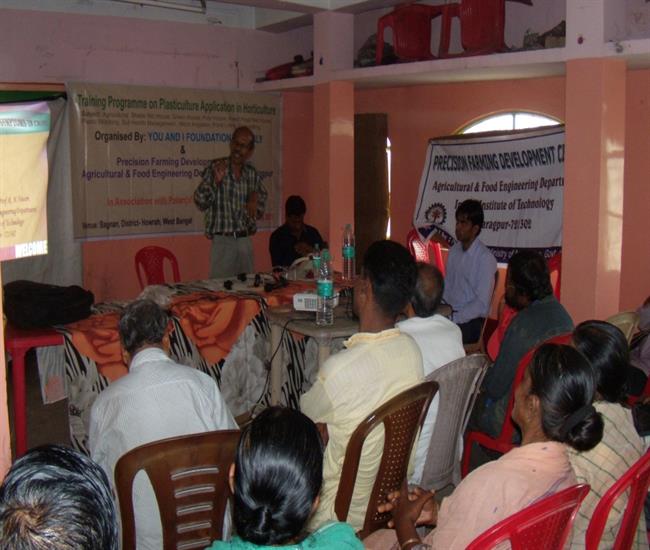Ecological Agriculture Project- ANKUR :
Ecological Agriculture Project- ANKUR :
YOU AND I FOUNDATION HOOGHLY has started Ecological Agriculture in West Bengal and built a movement for the protection of small farmers through promotion of ecological farming diversity through scientific management of natural resources, fair trade to ensure the healthy, diverse and safe food. Under this project, we encourage participatory planning with the marginal and smallholder, following the principles of sustainable ecological agriculture. For scientific and sustainable management of the farm resources we encourage participatory soil & water health management, indigenous seed management, indigenous knowledge management, maintaining diversification of subsystems/farm enterprises, innovation in harvesting and storing techniques, low cost ecological farming techniques to reduce forced migration in the lean season, malnutrition, micro-nutrient malnutrition, farming risk reduction, increasing farm based income etc.
Ecological integrated agriculture and climate resilient skill development program to retain & regain soil fertility effective water management, ensure Biodiversity, Indigenous seed conservation, food and nutrition security. The idea behind the program is to stop dependence on chemical fertilizers & poisonous pesticide farming and regain the fertility of the soil and mitigate the risk of farming community by providing them skill development for sustainable agriculture practice. The ecological farming offers diverse benefits, such as livelihood security, natural resource conservation, food self-sufficiency and social development. We are actively networking with the farmers in some districts of West Bengal, India to adopt this process of Ecological integrated agriculture through various training and field demonstration.
Today seed has become a big problem area for the farmers as the multinational companies from around the world has made it a means of making money. Normally farmers grow many crops every season but now with the new development only few farmers save seeds. With the time some of the farmers lost the skills of saving seeds, whereas some became dependent on market for the seeds from seed companies, who often promote hybrid seeds. Even the cost of the hybrid seed is up to ten times. Saving own seed means collecting your own seeds to have seed at home for next season’s planting. Saving seeds will not only make farmers self sufficient in the seeds but they can also save seeds of their own choice and save money which otherwise they were paying to companies. This way they can help conserve seed diversity and save the traditional, heritage varieties. Local seeds are also well adapted to the local conditions, therefore saving these seeds will ensure availability of these locally adapted climate resilient seeds.
We initiate to Ecological Integrated Agriculture program start at community farming at village-Khoragore, Baksha, Duttapur, G.P.- Baksha, Chandital-2 Block, District- Hooghly, and village- Shyampur, Nabagram, , Tethikhola, Narikelbar Shyampur-1Block, village- Juarkole, Shyampur-2 Block, State- West Bengal, India. We started our programme actively network with farmers and collecting data regarding agriculture pattern. Then we organized several awareness, training and demonstration program on Ecological Integrated Agriculture. We trained the farmers about making of bio-fertilizer, bio-pesticide and Enzyme from available natural resources. We provide training on indigenous seed saving to the farmers time to time through its training as well as directly in the farmers fields. In addition to preserving and distributing indigenous seeds, We are working with small farmers and communities.
We are committed to protect the living Soil - our mother Earth, our identity, the basis of our life and our livelihoods. We keep our soil healthy and fertile through ecological farming practices. We are also committed to keep our mother earth free from hazardous agrichemicals that not only pollute but also destroy the soil food web, the very basis of soil health.
The restoration of niches in the agricultural environment is the goal that may be achieved by
1. Introduction, intensification and optimization of synthetic input free, Natural Resource Management by Sustainable integrated ecological agriculture thereby promoting the natural resilience, income generation and nutritional as well as livelihood security should be the main aims of the project.
2. Introduction and intensification of natural resources by cultivating native vegetable, crop, grain, food and by Conservation of indigenous seeds varieties of paddy, pulses, oilseed, vegetable etc less
3. Support for marketing of toxic free agriculture products.
4. The migration of the young and energetic age group from farm sector, addressing these challenges will help in increasing youth’s and young farmers involvement in the agricultural sector, and ultimately addressing the significant untouched potential of this sizeable and growing demographic.
5. By introduce of ecological agriculture the input cost of agriculture will be reduce. Thus income from agriculture will be increase.
Target Group: 40 nos. small, marginal, poor farmers across Shampur-1& 2 Block in Howrah and Chanditala-2 in Hooghly benefit from the project.
YOU AND I FOUNDATION HOOGHLY has created a silent revolution transforming biodiversity and Ecological Agriculture into an anti poverty strategy for small and marginal peasants. We have also brought biodiverse and unique toxic free agriculture products into consumption patterns through direct marketing of our toxic free agriculture products. Beginning with the year 2015, YOU AND I FOUNDATION HOOGHLY has started Toxic Free Agriculture Product Retail Center at Chandannagore in District Hooghly. We have connected biodiversity conservation with organic production.
